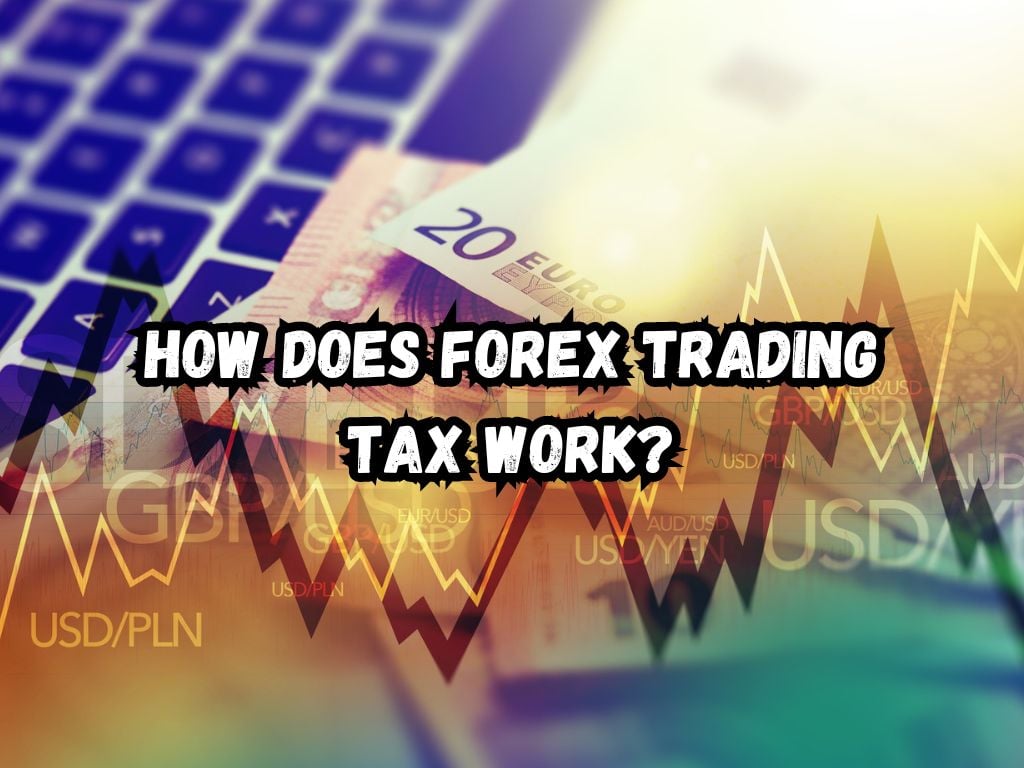The global forex market, an intricate network woven through the threads of international finance, holds a paramount position in the world economy.
Billions of dollars exchange hands each day, making forex trading a lucrative but complex realm, especially when it comes to understanding how taxes apply.
This article delves into the intricacies of how does forex trading tax work, aiming to shed light on a subject that remains murky for many traders.
Understanding Forex Trading
Forex trading involves buying and selling currencies on a global market. Traders profit from fluctuations in exchange rates between currency pairs, such as EUR/USD or GBP/JPY.
Forex isn’t just for large corporations or banks; individual retail traders make up a significant portion of the market, each aiming to carve out a profit through strategic trades.

Key Points
When discussing forex trading taxation, it’s vital to recognize the diversity in rules based on one’s location and trading status. Tax systems vary globally, and how a country categorizes trading gains can significantly affect tax liabilities.
Furthermore, the financial instruments traders choose (spot forex, futures, options) also influence their tax treatment. Understanding the distinction between short-term and long-term capital gains is critical, as each may be taxed differently.
How Does Forex Trading Tax Work?
The tax treatment of forex trading profits depends heavily on local laws. For instance, in the U.S., the Internal Revenue Service (IRS) scrutinizes forex trading gains under specific sections of the tax code, depending on the trading instrument.
Spot Forex Trading
Spot forex trading, the direct trading of currency pairs, falls under comprehensive tax guidelines. In the U.S., many spot trades are taxed according to IRS Section 988 rules. These rules treat forex gains as ordinary income, requiring traders to pay taxes accordingly.
However, the structure allows for the deduction of losses against other types of income, a potential silver lining for traders facing a down year.
Forex Contracts and Futures
Forex futures and options are considered differently for tax purposes. Under U.S. law, particularly IRS Section 1256, these contracts benefit from a 60/40 tax treatment. This means 60% of gains are taxed as long-term capital gains, while the remaining 40% are taxed as short-term, regardless of the holding period.
This amalgamation can lead to significantly lower tax rates for gains derived from these instruments.
Record Keeping for Forex Trading
Maintaining detailed records is not just good practice; it’s a necessity for compliance and accuracy in tax reporting. Traders should meticulously document dates, profits, losses, and any relevant details for each trade. This data not only aids in filling out tax returns but also becomes invaluable in case of audits.
Various software solutions exist to assist with this aspect, streamlining the process and ensuring accuracy.
Reporting and Paying Taxes on Forex Trading
The actual process of reporting forex trading on tax returns can seem daunting. Traders must accurately report their gains and losses, using specific tax forms designated for the types of trades they conducted. Knowing which forms to use, and when, is crucial.
For example, U.S. traders might use Form 6781 for Section 1256 contracts or other relevant forms for spot forex gains under Section 988. Seeking advice from a tax professional can greatly ease this burden.
Pro Tips
- Keeping abreast of changes in tax laws affecting forex trading is essential. These laws can evolve, impacting tax liabilities.
- Consulting with a tax advisor who has experience in forex trading can provide tailored advice and peace of mind.
- The importance of thorough record-keeping cannot be overstated. It not only aids in compliance but also in strategic planning and dispute resolution.
- Understanding the tax implications of trading as a hobby versus as a professional is crucial. Each has unique benefits and drawbacks.
- Incorporating tax planning into trading strategies can optimize financial outcomes and reduce surprises come tax season.

Frequently Asked Questions
Is forex trading tax-free in any country?
Some countries do not tax forex trading gains, but these exceptions are rare. Always consult a tax professional to understand local laws.
How do I file taxes for forex trading if I’m trading with an offshore broker?
Reporting requirements don’t change based on where your broker is located. You must report all worldwide income to your local tax authority, following the local laws and guidelines.
Can losses in forex trading be used to offset other taxable income?
In many jurisdictions, trading losses can offset other types of income. However, limits and rules vary, so professional advice is recommended.
Are there any particular tax benefits for full-time forex traders?
Full-time traders may access benefits like business expense deductions, depending on their country’s tax laws. Consulting with a tax advisor is advisable to maximize these benefits.
The best preparation is maintaining detailed and accurate trading records. These documents will support your tax filings and can help navigate any inquiries from tax authorities.
Conclusion
Understanding the tax implications of forex trading is a complex but necessary part of being a successful trader. With varying international laws and the myriad ways trades can be conducted and reported, staying informed and organized is key.
While this article provides a solid foundation, always seek personalized advice from tax professionals familiar with the specifics of forex trading. Sound tax planning and compliance are as integral to trading success as market analysis and strategy execution.


 Tags:
Tags:










